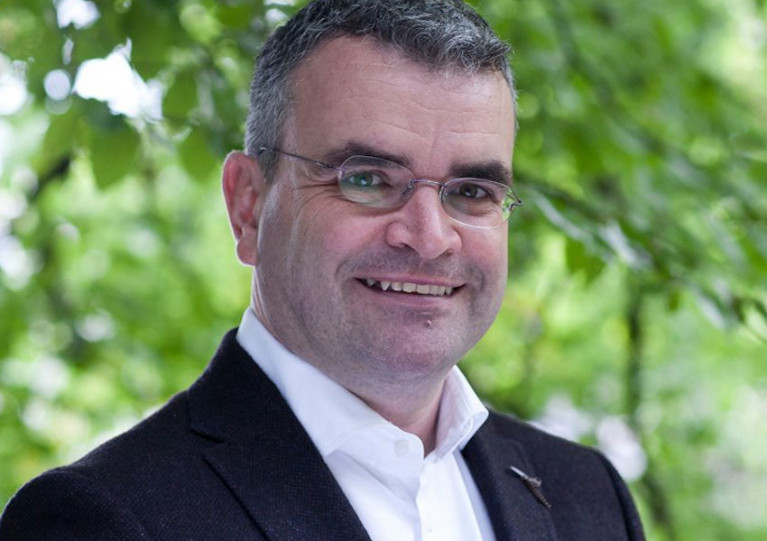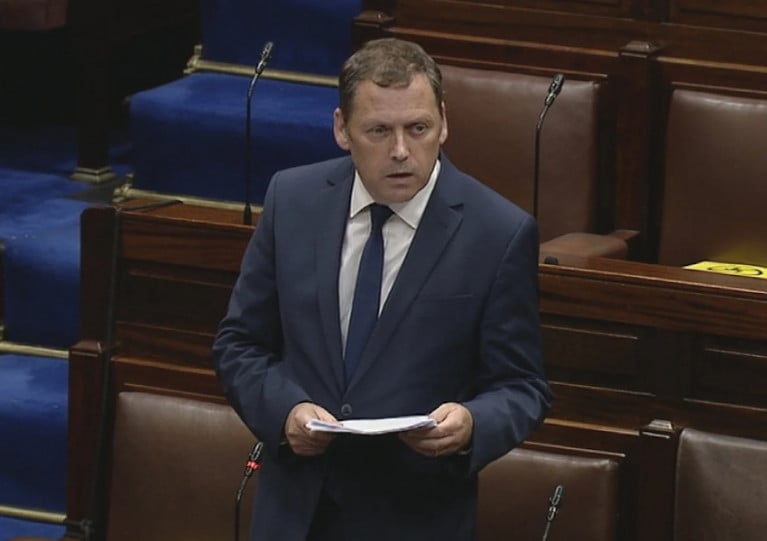Displaying items by tag: Barry Cowen
Dara Calleary Is Ireland’s New Marine Minister
Dara Calleary has been named as the new Minister for Agriculture and the Marine following last night’s dramatic sacking of Barry Cowen from the post.
RTÉ News reports on the new appointment confirmed today (Wednesday 15 July) by Taoiseach Micheál Martin, with the Fianna Fáil TD for Mayo promoted from his brief as chief whip and junior minister for the Gaeltacht.
Calleary’s predecessor as Marine Minister was removed just two weeks into the post amid controversy surrounding a fine for drink-driving in 2016.
Marine Minister Sacked Amid Drink-Drive Ban Controversy
Ireland’s new Marine Minister has been sacked from his role amid controversy surrounding a three-month road ban he received for drink-driving in 2016.
RTÉ News reports that Fianna Fáil TD Barry Cowen’s appointment as Minister of Agriculture and the Marine was terminated by President Michael D Higgins on the advice of Taoiseach and Fianna Fail leader Michael Martin.
Responding to the news on Twitter, Cowen said he was “both surprised and disappointed with this decision”.
(1) The Taoiseach informed me this evening by phone that he was removing me from office as Minister for Agriculture.
— Barry Cowen (@CowenBarry) July 14, 2020
I am both surprised and disappointed with this decision.
The Taoiseach will serve as acting minister of the department until a replacement is appointed.
Cowen had only taken on the brief at the end of June following the formation of the new coalition Government led by Fine Gael and Fianna Fáil.
Last Thursday he had a first meeting, via video conferencing, with the EU Fisheries Commissioner to discuss matters related to fisheries arrangements with the UK post-Brexit.
Negotiations with the UK over future fisheries arrangements were the focus of the first meeting between Ireland’s new Marine Minister, Barry Cowen, and the EU Fisheries Commissioner this past week.
Meeting virtually with Virginius Sinkevičius on Thursday (9 July) from his department’s Tullamore offices, Minister Cowen discussed the importance of the EU’s agreed Brexit negotiation mandate to “uphold existing reciprocal access conditions, quota shares and traditional activity of the Union fleet”.
Minister Cowen said: “This was a very useful first discussion with Commissioner Sinkevičius and it was important to be able to talk first-hand with the commissioner about Ireland’s concerns in relation to the potential negative impacts for our fishing communities in Ireland if we do not put in place a fair and balanced Fisheries Agreement with the UK.
“I reiterated this Government’s full support for the EU negotiating mandate and my confidence that the commissioner and [EU chief negotiator] Michel Barnier will continue to be strong defenders of Irish and EU fishing interests.
“It is clear to me that the negotiations on a fisheries agreement can only be successfully considered in the overall context of the wider EU/UK future relationship agreement and leveraging this will be vital in protecting our coastal communities”.
The minister and Commissioner Sinkevičius also discussed non-Brexit-related fisheries issues such as measures against illegal fishing, and Ireland’s commitment to promoting sustainability in setting quotas and fishing methods, as well as the future European Maritime Fisheries and Aquaculture Fund.































































